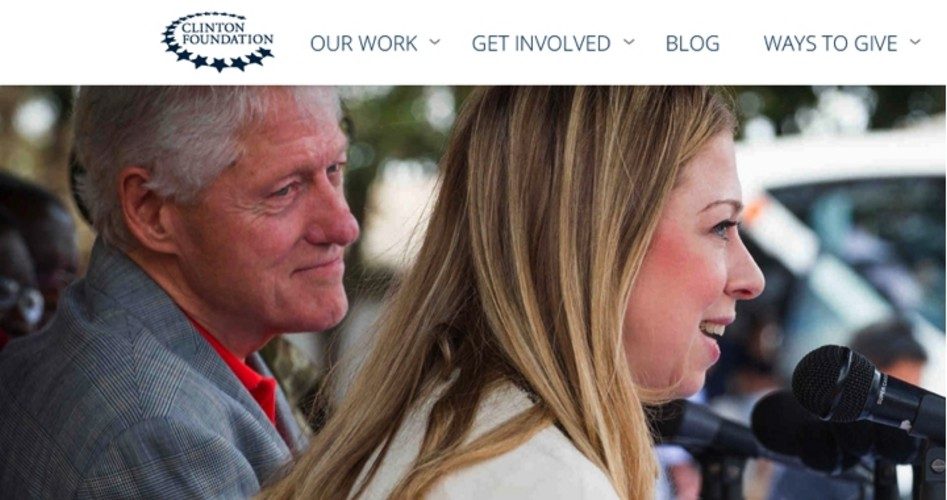
Even though Peter Schweizer’s book Clinton Cash: The Untold Story of How and Why Foreign Governments and Businesses Helped Make Bill and Hillary Rich isn’t due to be released until May 5, its potential revelations are so serious that dismissals of them are already reverberating in much of the media and from the Clinton presidential campaign.
The author was first to be impugned, being defamed because of his ties not only to the conservative Government Accountability Institute, where he serves as president, but his former position as a fellow at the conservative Hoover Institute. David Brock, the founder of the left-wing Media Matters (which says it is “dedicated to correcting conservative misinformation in the U.S. media”), called Schweizer’s project “a political put-up job,” while Hillary herself has already called it a “distraction” from the real issues of the day.
CNN’s Chris Cuomo asserted on Thursday’s New Day show that examples of the Clintons’ potential quid-pro-quo dealings in Schweizer’s book “were not that impressive,” while claiming the author “has ties to the right,” thereby dismissing from serious discussion any of those charges. Since the author is “tainted,” his charges must be bogus, according to Cuomo.
But Schweizer did not act like an attack dog, going after the Clintons. He himself said he found no smoking gun in the revelations he brought out about the Clintons, just “a pattern of financial transaction involving the Clintons that occurred contemporaneously with favorable U.S. policy decisions benefiting those providing the funds.” He added:
Short of someone involved in coming forward to give sworn testimony, we don’t know what might or might not have been said in private conversations, the exact nature of the transition, or why people in power make the decisions that they do.
One of those given an advance copy of Schweizer’s book was Senator Rand Paul (R-Ky.), who said Schweizer’s revelations will “make people question whether [Hillary Clinton] ought to run for president,” adding:
The facts are going to be alarming, they’re going to be mind-boggling, and I think people are going to read this book and say: My Goodness, this is happening in America?
Oddly enough, one of the mainstream media outlets backing up Schweizer’s research is often considered the mouthpiece for the establishment, the New York Times. It took Schweizer’s charges so seriously that it reviewed one of them, the Uranium One deal, and it went to great lengths to fact-check the story, with dozens of follow-on interviews and reviews of public records and securities filings, not only in the United States but in Russia and Canada as well. Journalists Jo Becker and Mike McIntire noted in their lengthy report “Cash Flowed to Clinton Foundation as Russians Pressed for Control of Uranium Company”: “Mr. Schweizer provided a preview of material in his book to The Times, which scrutinized his information and built upon it with its own reporting.”
And their findings painted the Clintons in a bad light.
In a nutshell, former president Bill Clinton helped Frank Giustra, the owner of a Canadian uranium company, sell his company to a Russian company, Rosatrom, giving Soviet President Vladimir Putin virtual control of at least 20 percent of the world’s known uranium reserves, many of them in the United States. Following the completion of the deal, Giustra poured more than $30 million into the Clinton Foundation. The Times confirmed that the Committee on Foreign Investments in the United States (CFIUS) had to approve of the deal, while Hillary, as secretary of state, sat on that committee as it gave its approval.
The Times went further, expanding on deceptions noted by Schweizer concerning Clinton’s failure to report financial contributions, even though she signed an agreement before assuming her position as secretary of state that she would fully disclose all contributions made to the Clinton Foundation. The Times uncovered those failures to report, explaining:
To judge from those disclosures … the only Uranium One official to give to the Clinton Foundation was [its] chairman, and the amount was relatively small: no more than $250,000….
But a review of tax records in Canada … shows that he donated millions of dollars more….
His donations … included $1 million reported in 2009 … $250,000 in 2010 … and $500,000 in 2012.
His weren’t the only contributions made secretly either, according to the Times’ investigation. They came “from a constellation of people with ties to Uranium One or UrAsia, the company that originally acquired Uranium One.”
Claims from the Clinton camp that these donations were all done in good faith, that the Clintons themselves never saw nor spent any of the money on themselves, were also proved to be lies, according to the Times:
A person with knowledge of the Clinton Foundation’s fund-raising operation, who requested anonymity to speak candidly about it, said that for many people, the hope is that money will in fact buy influence: “Why do you think they are doing it — because they love them?”
Many questions remain, and the hope is that upon release of Schweizer’s book, there will be answers. But one question not addressed is this: Why would the New York Times, with its well-earned reputation as the mouthpiece and print spokesman for the insiders, make such a herculean effort to vet the charges made against Hillary Clinton, the insider’s choice for 2016? Does not the Times’ proof that Schweizer’s effort is not a “put-up job” risk giving Schweizer’s claims such credibility that they could seriously damage, if not end altogether, her aspirations for 2016?
Speculation aside, the Teflon coating that has surrounded the Clintons for years as they have staggered from one indiscretion to another without penalty or punishment may be wearing thin, thanks to Schweizer and the New York Times.
A graduate of an Ivy League school and a former investment advisor, Bob is a regular contributor to The New American magazine and blogs frequently at www.LightFromTheRight.com, primarily on economics and politics.


